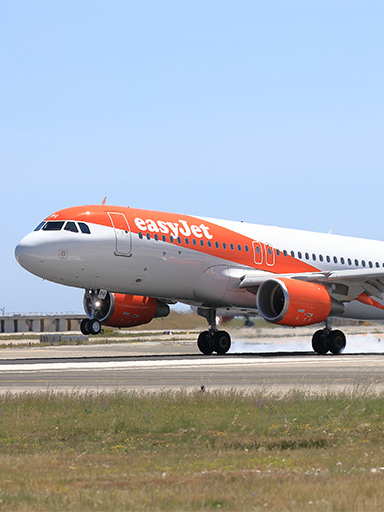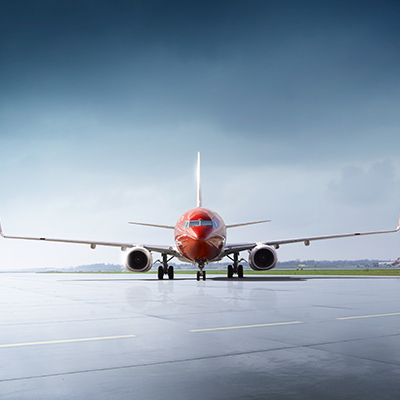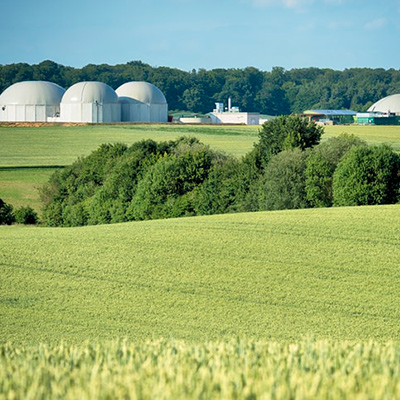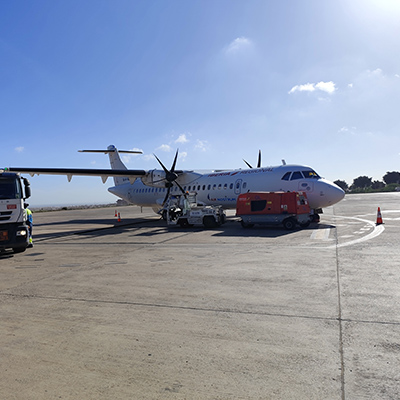- easyJet and Moeve commit to promoting the development of sustainable aviation fuel with the signing of a supply agreement until 2030
- Moeve produces SAF at its La Rábida Energy Park (Huelva) from used cooking oils. The company already supplies SAF at the main Spanish airports of the Iberian Peninsula and the Canary Islands
- SAF can reduce CO2 emissions throughout its lifecycle by up to 90% compared to traditional kerosene
- easyJet will have access to SAF from Moeve, using it to operate on key routes in its Spanish market between 2025 and 2030
- The airline is committed to decarbonising its operations, with SAF a key component in helping it make this transition
Moeve produces SAF at its La Rábida Energy Park (Huelva) from used cooking oils. Second-generation biofuels can reduce CO2 emissions by up to 90% throughout its entire lifecycle, compared to traditional kerosene
Álvaro Macarro, Moeve’s Director of Sustainable Aviation, said: “At Moeve we promote solutions that drive decarbonisation in the airline industry. We believe that SAF is the immediate solution for a more sustainable aviation and therefore we supply it at the main airports of the Iberian Peninsula and the Canary Islands on a permanent basis. This new milestone reached with easyJet, a leading airline in Spain, is absolutely fundamental for our joint decarbonisation journey with our clients.”
Raminder Shergill, Director of Tax & Fuel Strategy at easyJet, said: “We are committed to decarbonising our operations and SAF is going to play a vital role in helping us achieve that mission. We’re therefore delighted to have signed this agreement with Moeve to serve our Spanish network as we continue to take steps to reducing the impact of our flying.”
To ensure a supply of SAF to its clients, Moeve is building, together with its partners, a new plant with a flexible production capacity of 0.5 million metric tons of SAF and renewable diesel that will form part of the largest second-generation biofuels complex in southern Europe when it begins operation in 2026.
With this project, the company is making further progress towards its goal of becoming the top producer of 2G biofuels in Spain and Portugal, with an annual production capacity of 2.5 million metric tons of biofuels by 2030, of which 800,000 metric tons will be from SAF, an amount sufficient for 2,000 flights around the planet.
The commitment from easyJet is another example of its backing of the SAF industry, one of the key components of its net zero roadmap, and it complements other recent activities in this area. Earlier this month, the airline, alongside its partner Airbus, launched a new business travel solution that will explore corporate partnerships as a way to help finance SAF and drive down the ‘green premium’ to make it more affordable. And at the end of October easyJet formally joined Project SkyPower, a CEO-led consortium aiming to accelerate the growth of the eSAF industry by helping unlock Final Investment Decisions for e-SAF projects in Europe.
The agreement between Moeve and easyJet is in line with the European Commission's ‘Fit for 55’ package, which includes a legislative initiative called 'RefuelEU Aviation' that aims to boost the supply and demand of aviation biofuels in the European Union, reaching 2% use by 2025, 6% by 2030, and 70% by 2050. In addition, this partnership supports several of the Sustainable Development Goals from the United Nations 2030 Agenda: SDG 7 (Affordable and clean energy), SDG 8 (Decent work and economic growth), SDG 12 (Responsible consumption and production) and SDG 13 (Climate action).




